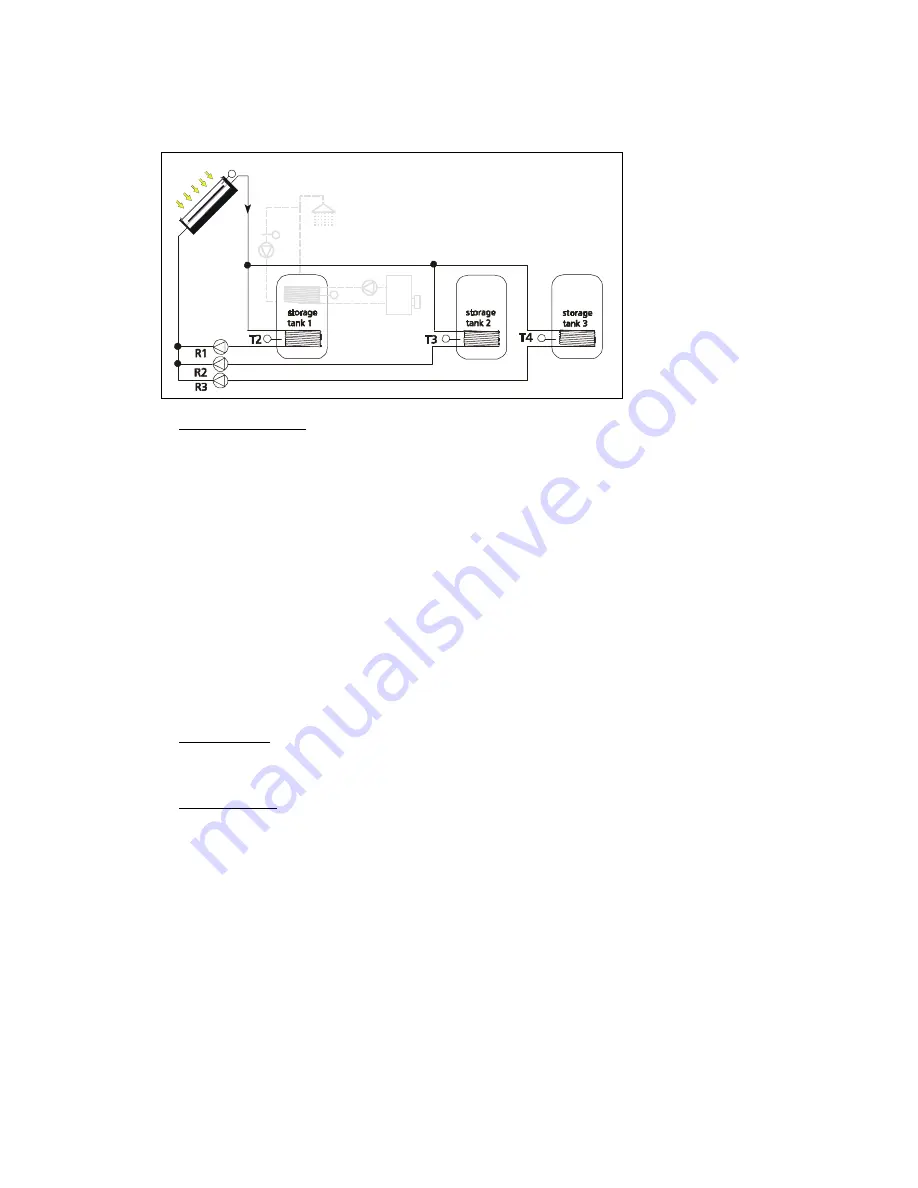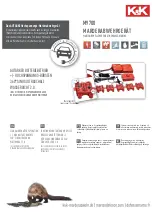
31
4.1.5.2
Internal heat exchanger, 3 storage tanks, 1 collector array, pump control
If, in the 'System
selection' menu, the
points
"intern. heat exchanger",
"3 storage tank",
"1 collector" and
"Basic P" are selected,
the hydraulic diagram
illustrated here is
available for use as a
basic system with the
indicated variants.
•
"Basic P" diagram: The regulator constantly records the differential temperature between the
sensors T1 and T2, T1 and T3 or T1 and T4. If the set switch-on differential temperature
(parameter: 'diff. temp. solar ON') is reached by one of the differential temperatures, either solar
circuit pump R1 is switched on for storage tank 1, R2 for storage tank 2 or R3 for storage tank 3. If
the storage tank currently about to be charged is the first storage tank on the storage tank priority
list (parameter -> storage tank priority...), this is charged until it reaches its maximum storing
temperature (parameter: 'storage tank x max.') or falls below the switch-off differential temperature
(parameter: 'diff. temp. solar OFF'). Then, if the switch-on condition of a storage tank with lower
priority is met, the corresponding solar circuit pump is switched on. When a secondary storage tank
is charged it is checked, at regular intervals (“storage tank priority...” -> “Test interval”), whether a
storage tank with higher priority can be charged again. For this purpose the solar circuit pump is
deactivated for a short period (“storage tank priority...” -> “Test period”). If a storage tank with
higher priority reaches its switch-on temperature within this period, this is charged.
Depending on the setting (parameter -> speed control -> R1, -> R2 and -> R3), solar pump’s
speed control maintains the differential temperature between 'collector' (T1) and 'lower part of the
storage tank' (T2, T3 or T4) at the value of the parameter 'diff. temp. solar ON' or the absolute
temperature of the 'collector' (T1) constant at a fixed temperature of 70°C.
The additional functions shown (circulation and reheating) are not activated.
•
Add-on
"
- Ci": Output R4 and the T5 temperature sensor can also provide a control of a circulation
pump for the warm water cycle. A detailed functional description of the add-on with further tips can
be found on page 14.
•
Add-on
"
- AH": R4 and T5 combined with an oil or gas boiler can provide after-heating. A detailed
functional description of this add-on can be found on page 15.
To prevent erroneous settings, the described switch-on and switch-off values are interlocked,
this means they can be set only at a specific value to one another.
T5
R4
Basic
-Ci
R4
T5
oil,
gas
Basic
-AH
T1
















































